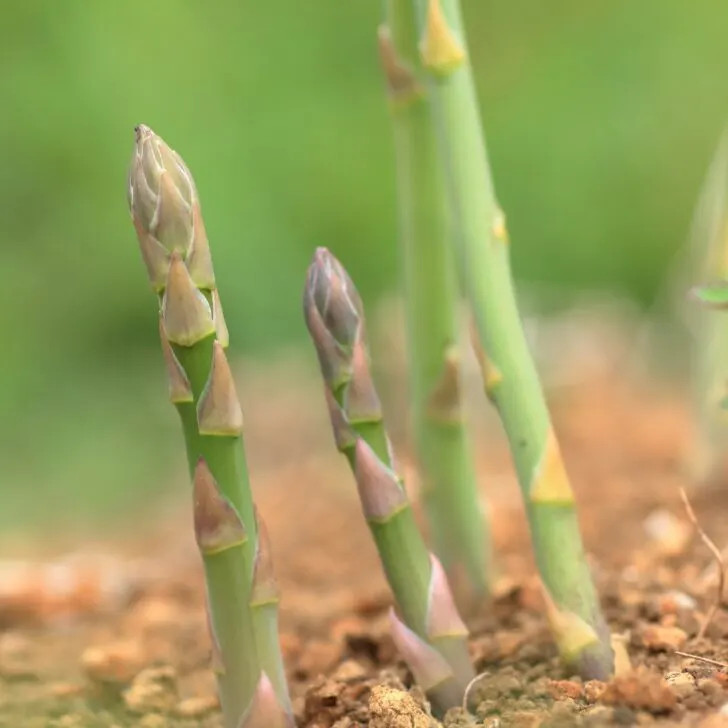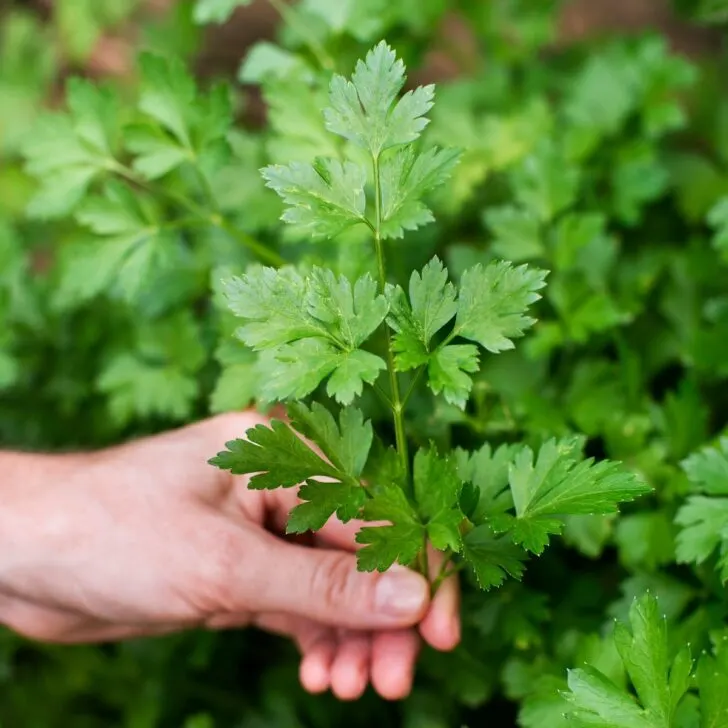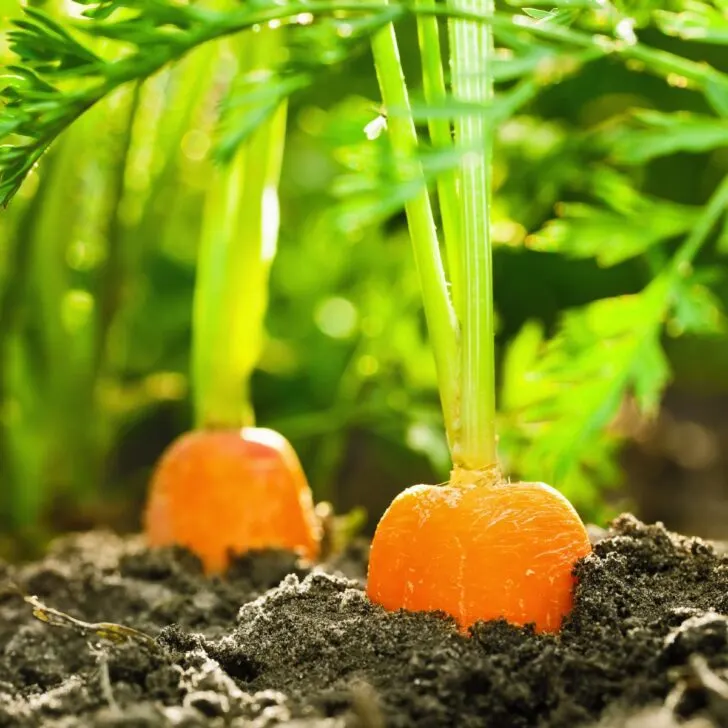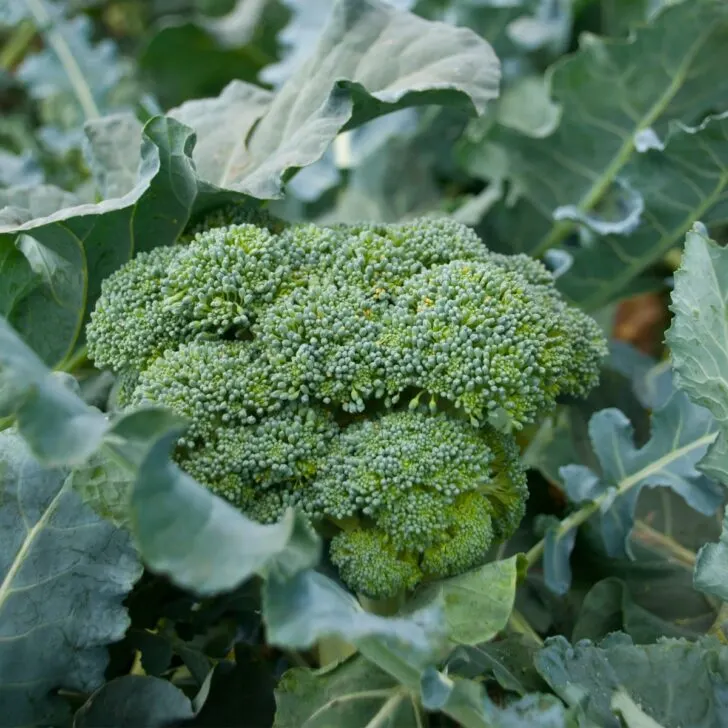Unlock the benefits of companion planting for Brussels sprouts! Boost yields, deter pests, and enhance garden health with these tips.
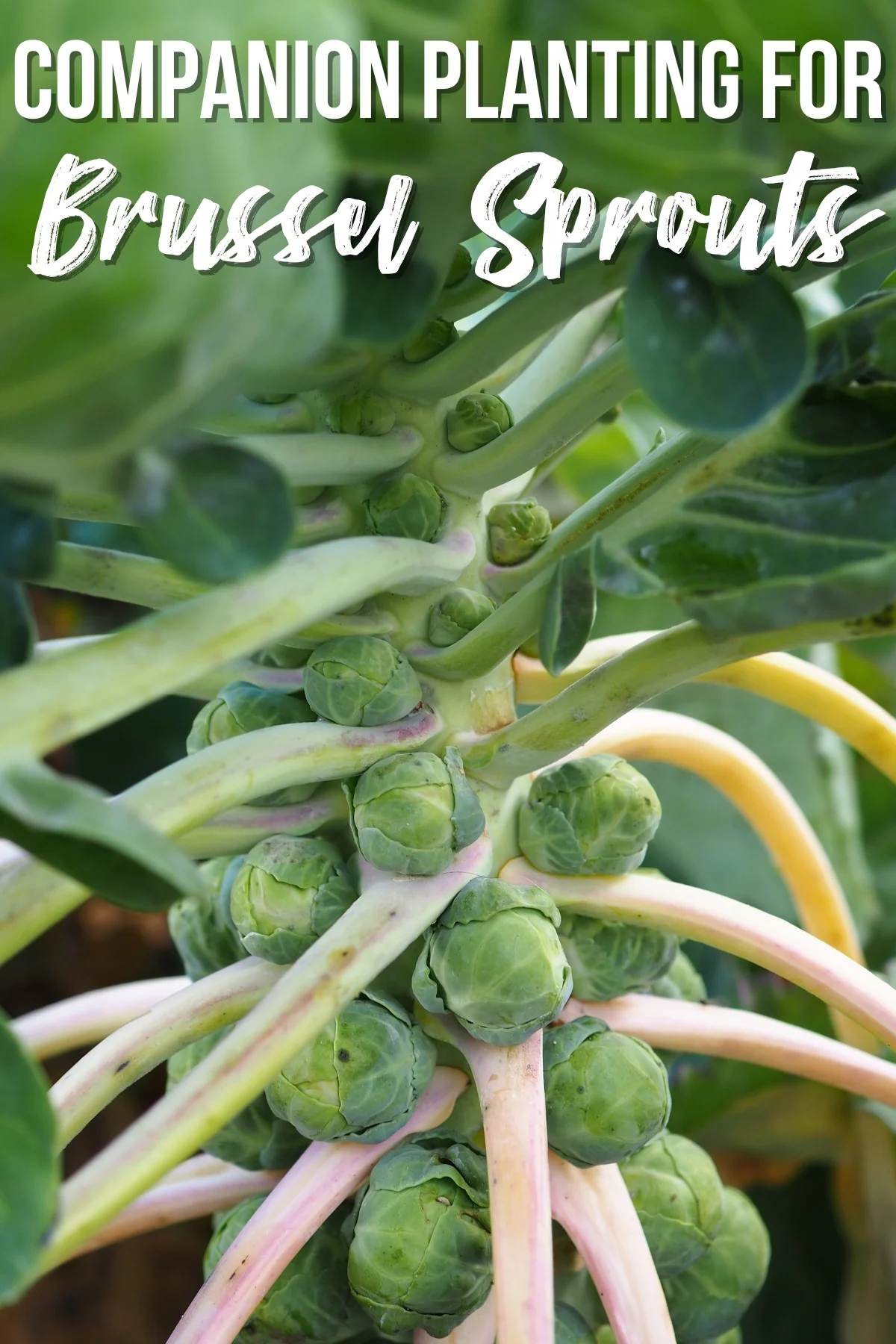
Would you like some help in the garden? Let the plants assist you by companion planting! This gardening strategy can amplify your harvest, enhance the soil, and reduce labor.
In this article, we'll look at the best companion plants for brussels sprouts, and which ones to avoid. Let's delve deeper into how you can maximize your yield with the right plant partners!
This post contains affiliate links for your convenience. Purchases made through these links may earn me a small commission at no additional cost to you.
Best Brussel Sprouts Companion Plants
The best companion plants for Brussels sprouts are ones needing similar growing conditions and those that repel pests.
Excellent companions for Brussels sprouts include:
| Companion Plant | Primary Benefits | Additional Notes |
|---|---|---|
| Beets | Doesn't compete for magnesium | Easy to grow alongside Brussels sprouts |
| Alliums | Repels aphids and other pests | Includes garlic, onions, leeks, and chives |
| Mint | Deters pests | Grow in a container to prevent spreading |
| Dill | Attracts beneficial insects | Attracts ladybugs, hoverflies |
| Sage | Attracts beneficial insects | Attracts parasitic wasps |
| Chamomile | Enhances flavor | Some gardeners swear by it |
| Rosemary | Keeps away cabbage moths | Good for other brassicas too |
| Nasturtiums | Repels and traps pests, retains soil moisture | Also attracts pollinators |
| French Marigolds | Deters pests and inhibits root nematodes | Adds color and attracts bees |
Worst Companion Plants for Brussels Sprouts
Knowing what plants to avoid is just as important! Don't plant Brussels Sprouts near these other vegetables:
| Plants to Avoid | Primary Concerns | Additional Notes |
|---|---|---|
| Other Brassicas | Attract the same pests | Includes cauliflower, broccoli, cabbage, and kale |
| Strawberries | Can inhibit growth and attract pests | Specifically attracts slugs and snails |
| Tomatoes | Competes for nutrients | Both are heavy feeders |
| Peppers | Competes for nutrients | Both are heavy feeders |
| Eggplants | Competes for nutrients | Both are heavy feeders |
| Potatoes | Root disturbance during harvesting | Harvesting potatoes can disrupt Brussels sprouts |
Things to know about growing brussel sprouts
This classic winter vegetable is usually planted in late summer or early fall, although it can also be planted in spring in cooler climates. You can grow brussel sprouts from seed or buy them as established plants at your local garden center.
Their mini cabbage-like buds grow along a tall central stalk, and a light frost before harvest can make them especially tasty.
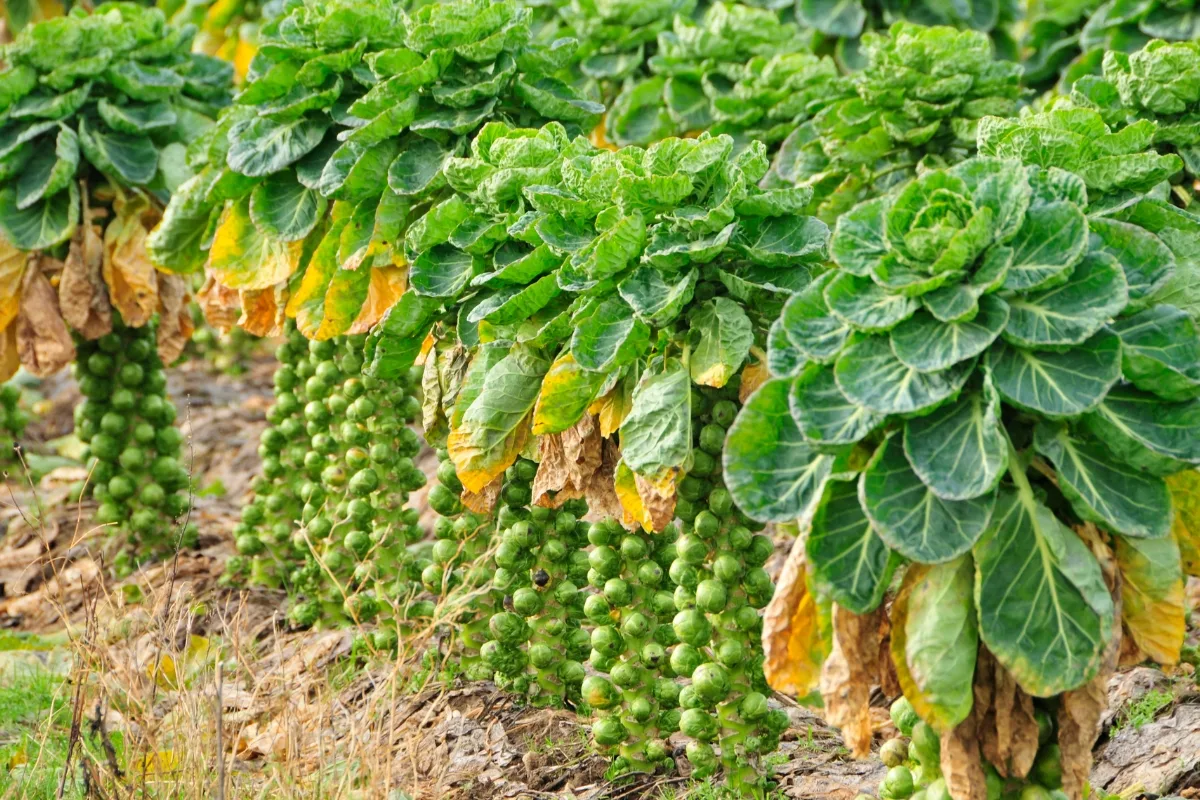
However, just like their brassica relatives, Brussels sprouts are vulnerable to various pests. The most serious pests of Brussels sprouts include the diamondback moth caterpillar, cabbage worms, and cabbage loopers. Therefore, the best companions are ones that repel these insects.
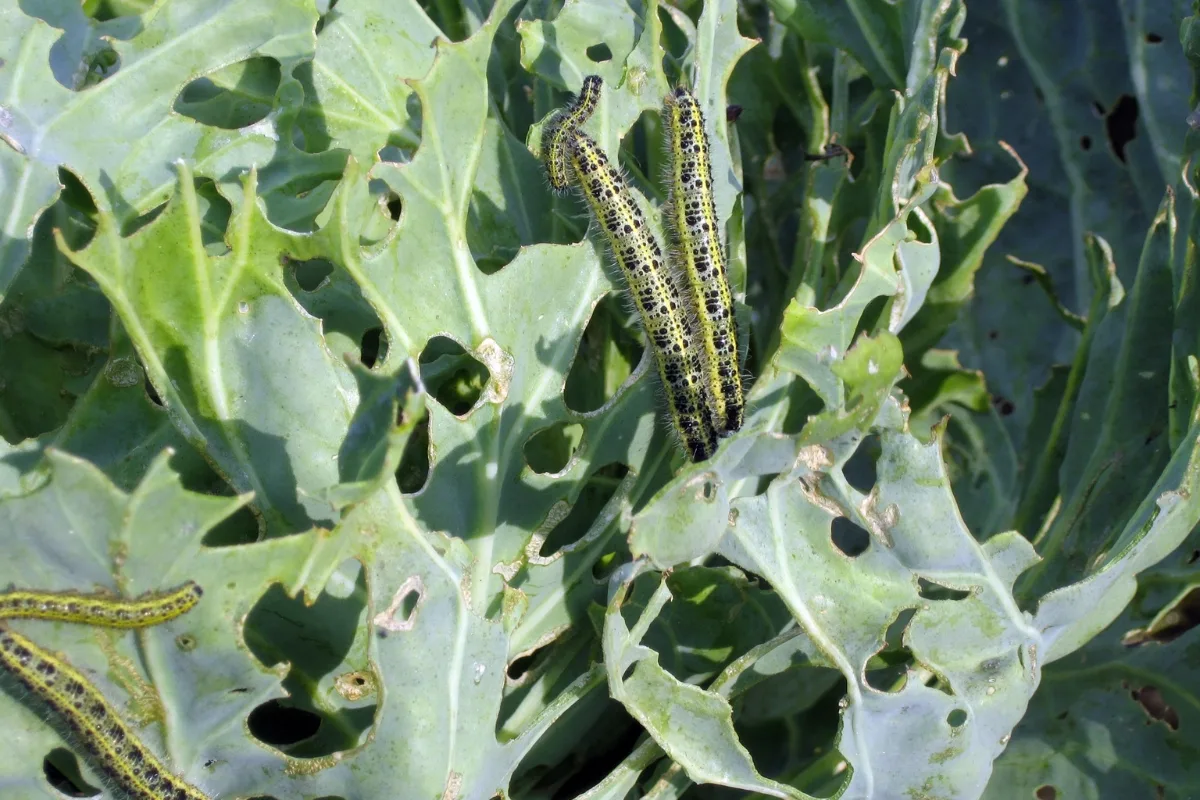
Brussels sprout plants don't like disturbance around their roots, so consider this when you plant other crops nearby. They also grow best when not planted in a spot where other brassicas recently grew, so be sure to rotate vegetables in this plant family for the best results.
As heavy feeders, they also require regular watering and nutrient-rich soil. Dry soil can produce a less tasty flavor in the sprouts. They also need a relatively high N-P-K fertilizer several times as they grow.
Tips for Companion Planting with Brussels Sprouts
Companion planting might seem like a simple concept of placing two plants side by side, but the effectiveness of this strategy requires a little more foresight. Here are some practical guidelines to optimize your Brussels sprouts' growth and health with companion plants.
Planting Distance
It's not just about which plants are placed next to each other but also how close they are. Ensure you give adequate space between Brussels sprouts and their companion plants to allow for proper root spread and growth. Generally, a distance of 12-16 inches is a good starting point.
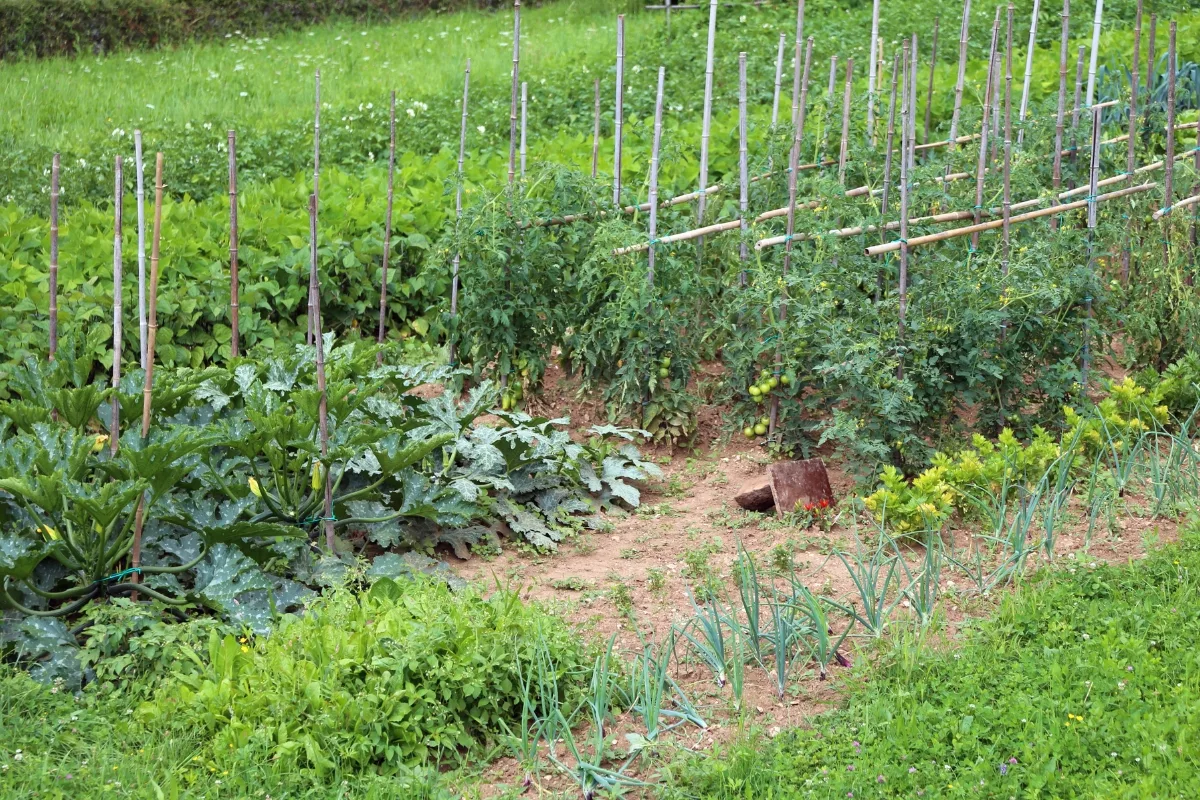
Timing
While Brussels sprouts and their companions might be perfect partners, they might not have the same growth rate. Plant faster-growing companions a few weeks after the Brussels sprouts, so they don't overshadow or out-compete them.
Other plants may be ideal companions, but they grow at different times of the year. Choose vegetables, herbs or flowers that will provide the most benefit in the spring or fall.
Mulching
Using organic mulch around your Brussels sprouts and companions can help retain soil moisture, suppress weeds, and regulate soil temperature. Straw, pine needles, or shredded leaves can be effective mulching materials.
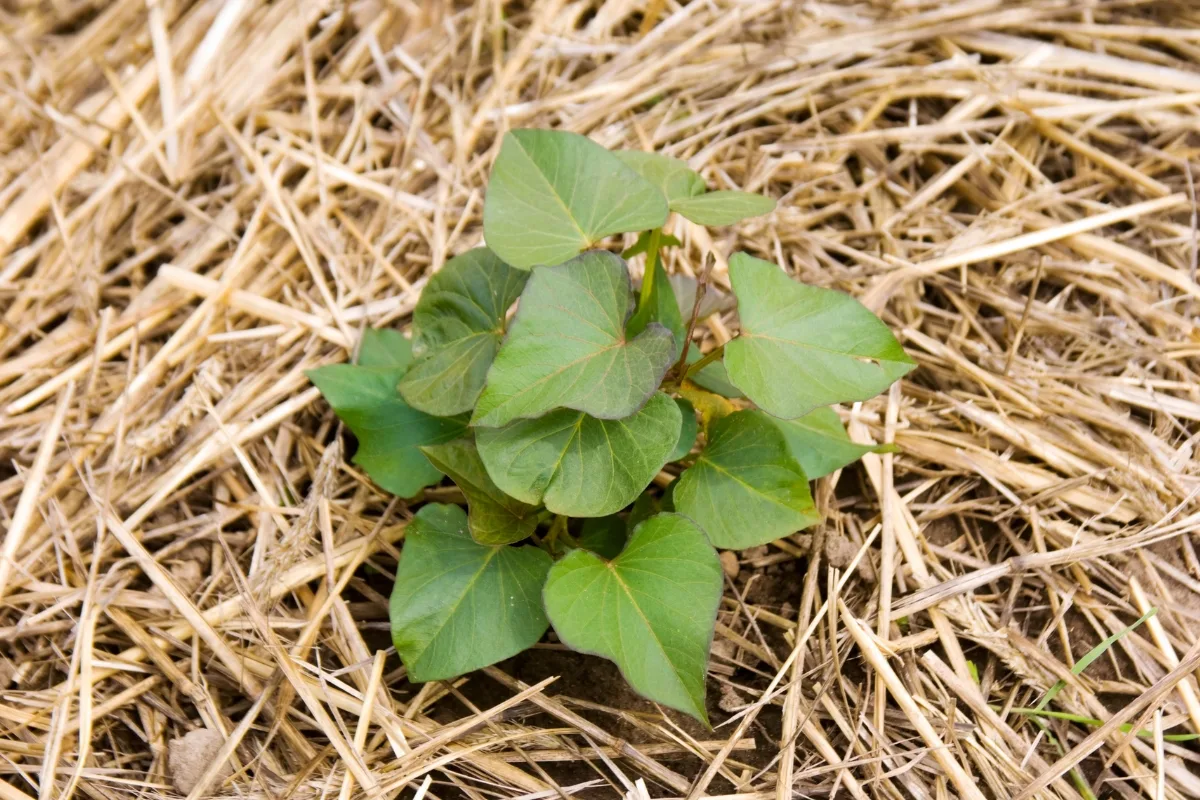
Crop Rotation
Pay attention to how your plants interact. If you notice that a companion plant isn't benefiting the Brussels sprouts as expected, consider trying something else next season. Also, practice crop rotation to prevent soil-borne diseases and pests from building up.
Harvest Carefully
When harvesting plants grown close to Brussels sprouts, be gentle to avoid disturbing the sprouts' roots. Using a fork instead of pulling can minimize root damage.
Interplanting and Succession Planting
If you've limited space, interplant faster-growing crops (like radishes) among slower-growing Brussels sprouts. Once you harvest the fast growers, the sprouts will have more room to expand.
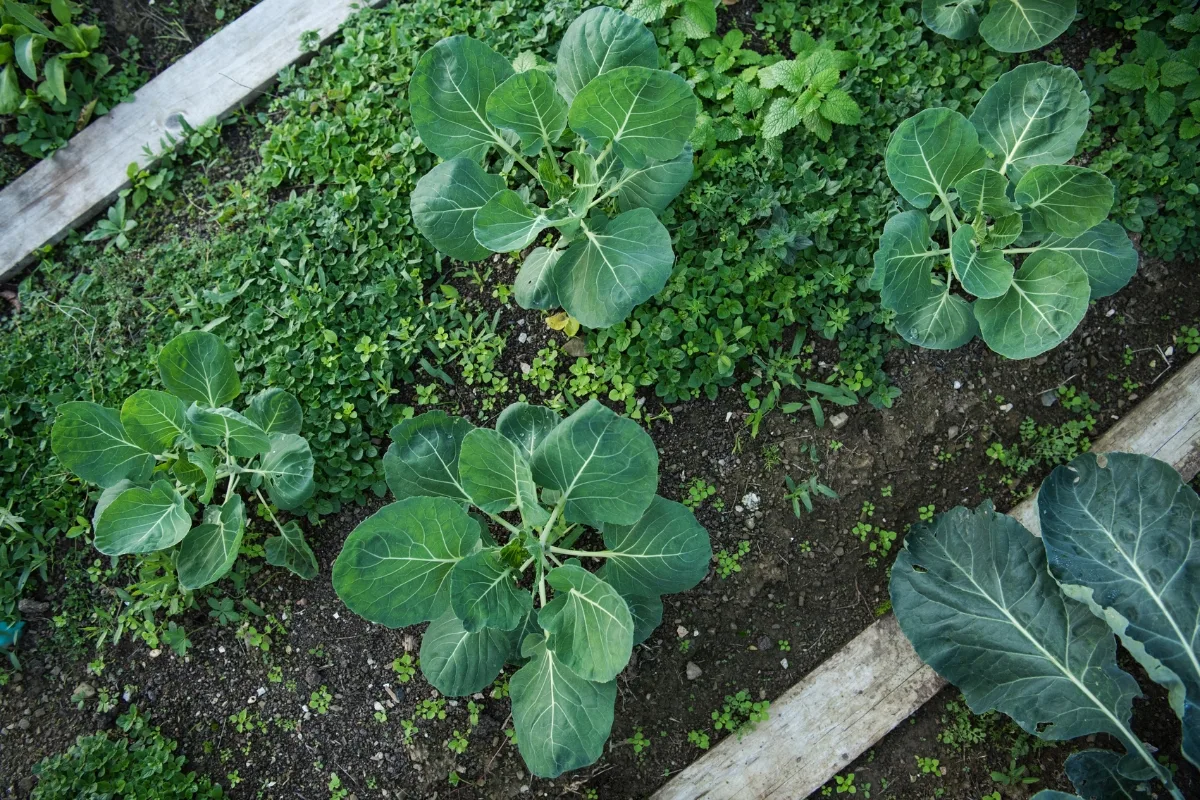
Succession planting can also be employed, planting a subsequent beneficial crop after harvesting the preceding one.
Natural Barriers
Consider using taller companion plants to act as windbreaks for Brussels sprouts, especially in areas with strong winds. This can reduce wind damage and help the sprouts grow upright.
Remember, nature is dynamic, and what works in one garden might not work in another due to variations in soil, climate, and local pests. By being observant and adaptable, you can refine your companion planting strategy to best suit your unique garden environment.

